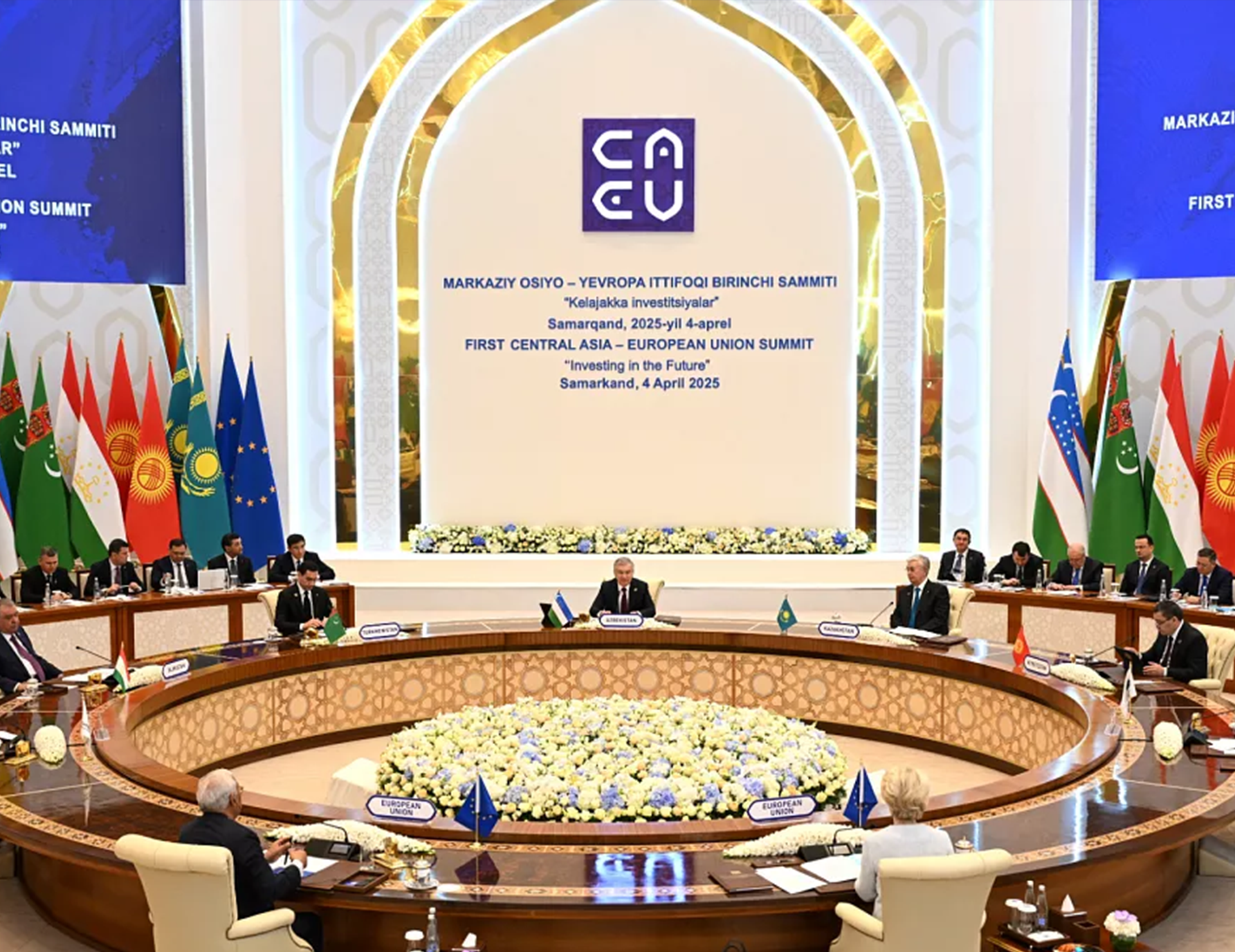Azerbaijan got mixed signals from the first-ever EU-Central Asia summit

The EU and five Central Asian countries held their inaugural high-level summit on April 4 in Samarkand, marking a watershed moment in Brussels' engagement with the region amid shifting power dynamics in wider Eurasia. In addition to its contribution to deepening political ties between the EU and Central Asia, the meeting produced concrete deliverables on trade and investment, connectivity, energy, critical raw materials, water, and security cooperation. The 12-billion-euro Global Gateway investment package declared by Ursula von der Leyen is expected to inject new momentum into joint efforts to enhance the region’s trade and connectivity potential, which gained strategic importance after Russia’s invasion of Ukraine. The Team Europe approach will increase the efficiency of the new projects by bringing together the Commission, member states, and the private sector, while the newly created coordination platform will help track achievements and enable timely interventions. For the EU, building viable transport routes to Central Asia is necessary for its efforts to diversify supply chains, an essential component of its claim to strategic autonomy from friends and foes alike. For Central Asian countries, growing EU presence means much-needed investments for economic development, while strengthening the western vector of their increasingly multivectoral foreign policy.
Not surprisingly, geopolitics was the buzzword in the discussions. The first article of the Joint Summit Declaration says the sides reaffirm their commitment to deeper cooperation in an evolving global and regional geopolitical landscape by upgrading relations between the EU and Central Asia to the level of a strategic partnership. Showing the EU’s long-term interest in expanding its footprint in Central Asia, the agreement defies the argument that Brussels’ opening to the region post-Ukraine 2022 was momentary. Yet, there are questions about the EU’s ability to walk the walk to realize its geopolitical ambitions in the region. Firstly, as a normative-civilian power, the EU is not equipped with the necessary geopolitical toolbox to fill in the power vacuum left by Russia. Von der Leyen’s “Geopolitical Commission” has had a mixed record of success in banking on Russian weakness to make larger inroads into the South Caucasus and Central Asia in the last three years. ‘Less human rights, more Realpolitik’ will score points with Central Asian officials but it will hardly secure a strong regional presence compared to those of well-established powers like Russia and China.
Secondly, Brussels suffers from internal tensions, be it politico-economic disagreements between member states or its identity crisis in light of growing Euroscepticism, which will hamper its ability to project power in far-flung regions, including Central Asia. Thirdly, the deepening cracks in the EU-U.S. relations will increase the cost of competition with Russia and China in Central Asia. Far worse, the U.S. emerges as a rival to compete against. Lastly, sour relations with the two key transit states in the South Caucasus - Azerbaijan and Georgia - throw sand in the gears of EU efforts to gain smooth access to Central Asia.
The region’s rising status in the EU’s strategic calculations is an ultimate opportunity for Azerbaijan to leverage its pivotal position in the Trans-Caspian connectivity and bend Brussels’ South Caucasus policy in its favor. As the Middle Corridor has gained traction as a viable east-west transit route and global spotlight has turned to the weaponization of strategic resources by Moscow and Beijing, Azerbaijan's value has expanded beyond hydrocarbons. Today, its geography places it at the heart of two emerging priorities for Brussels: facilitating access to Central Asia’s critical raw materials (CRMs) and enabling the export of green energy from the region to European markets. In the last two years, the EU signed strategic partnership agreements with Kazakhstan and Uzbekistan on CRMs, which envision resource extraction and the creation of local processing capacities with value-added. Brussels will need buy-in from major Middle Corridor countries, especially Azerbaijan, to establish sustainable CRMs supply chains across the Caspian Sea. Azerbaijan has also been at the center of the regional green drive, which is expected to supply EU countries with green electricity, thus contributing to European efforts to decrease dependence on Russia and move toward a green economy. With the Caspian Green Energy Corridor and Black Sea Cable projects underway, Azerbaijan is poised to expand its role from a strategic oil and gas route to a linchpin in the transit of Central Asian green electricity to Europe.
Yet, despite a shared interest in stability, Brussels and Baku appear out of sync on how peace in the South Caucasus should underpin intraregional and interregional connectivity. The Joint Summit Declaration adopted in Samarkand emphasizes the “importance of peace and stability in the South Caucasus as a prerequisite to the successful implementation of new projects.” In her speech, Ursula von der Leyen said, “the opening of the borders of Armenia with Türkiye and Azerbaijan is going to be a game changer” in this regard. Brussels’ approach hinges on the belief that meaningful economic engagement with the South Caucasus and Central Asia must include Armenia, making swift finalization of the Baku-Yerevan peace accord a priority, though recent tensions suggest the two capitals remain at odds over the timeline. Azerbaijan expects Armenia to remove territorial claims from its constitution and calls for the dissolution of the OSCE Minsk Group to sign the agreement. Baku also wants unimpeded access to its Nakhchivan exclave through Armenia. So long as these take, the Azerbaijan-Georgia-Türkiye route remains the linchpin of regional connectivity. By tying its backing for the Trans-Caspian corridor to the swift finalization of the Armenia-Azerbaijan peace deal, Brussels risks overplaying its hand with a Baku unwilling to bend to external pressure. The EU made a similar move in 2017, pulling its support from the Baku-Tbilisi-Kars railway project on the grounds that it reinforced Armenia’s regional isolation. At that time, Azerbaijan and Turkey went forward to realize the project without much external involvement. It remains to be seen how it will play out this time. What remains clear is that a peaceful South Caucasus is integral to both the EU’s connectivity ambitions and Azerbaijan’s strategic calculus. Brussels and Baku may differ on timing and priorities, but the stakes demand a coordinated approach. Sorting out differences through constructive engagement offers win-win solutions.







